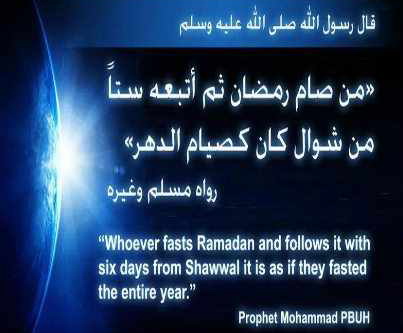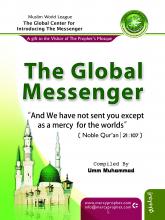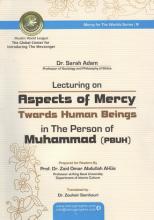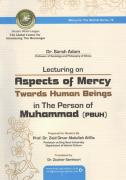The Prophet of Mercy Website
Muslim World League - Global Commission for Introducing the Messenger
Dear audience, It may be difficult to appreciate such behavior of the Prophet, pbuh, towards women, by those entertain in their minds certain ideas about greatness, such as the asceticism of Buddha and his abandoning of his wife, or such great men as those who have nothing but scorn and disregard for women, considering them mere devices for pleasure or machines for producing babies, and hence, men should not waste their time but should forget all about them, as we have previously seen.The Prophet, pbuh, regarded woman as half the world, when he considered women to be the counterparts of men.[15]I was greatly impressed by the Prophet’s description of women as vials that are fragile, a description that reflects his tenderness; hence, they must be treated kindly and tenderly. Such was his attitude towards his women. Anas bin Malek reports that in one of the trips of the Prophet, pbuh, in which he was accompanied by a black boy called Anjasha, who was singing melodiously to the camels he was leading. So, the Messenger of God, pbuh, said, “Easy, O Anjasha, have mercy on the vials”.[16] Going through the commentaries on the above tradition I have come to the following conclusion:[17] The commentators have reported that Anjasha had a beautiful voice and was singing verses of poetry, some of which contained some flirtation. So the Prophet, pbuh, was afraid that the women might be tempted by what they heard and the effect of his singing; so he asked him to desist, by way of mercy towards the women.Another interpretation has it that when camels hear this sort of signing (which is called hidaa’ in Arabic) they would move fast, which bothers those mounting them and might cause some of the women to fall off, and that was why the Prophet, pbuh, told Anjasha to desist. I believe both interpretations are acceptable. But whichever of them is the true interpretation, the episode clearly indicates the Prophet’s mercy towards women and his fear for them.
In another episode, a woman by the name of Asmaa’ bint Amees consulted the Prophet, pbuh, on a personal matter related to her having to choose between two men who proposed to her. The Prophet, pbuh, said, “Neither this nor that, because Ma’awiyay is penniless, and Abu Jahm was harsh on women, though he was well to do. I suggest that you marry Osamah bin Zaid[18].”This episode is food for thinking and calls for admiration. Thus, this woman knew very well, as other women did, that the Prophet, pbuh, was extremely busy but despite that he would give them part of his time.Another woman consults the Prophet, pbuh, on some matter springing from her feeling of mercy. So he gave her permission to practice what was on her mind in all security.Dear audience, the woman is Zainab, the wife of the close companion of the Prophet, pbuh, Abdullah bin Masooud. She had intended to donate some of her possessions by way of charity, but at the same time she was aware that her husband and son needed such donation. So she was torn by her desire to perform a charitable action on some poor people for obtaining God’s reward and meriting His pleasure, and a desire to give the money to her husband and son by way of mercy towards them.So, she went to the Prophet, pbuh, to ask him about this kind of alms. The Prophet, read her massage, as they say, and told her that her alms would be doubly rewarded: the reward of kinship and the reward of alms.[19] So she was pleased with the Prophet’s guidance, which reflects mercy among the members of the same family, and provided this woman with a good solution to the problem which was on her mind.The Prophet, pbuh, was merciful towards Asmaa’ and had pity on her, when he advised her not to marry Ma’awiya on account of his poverty, lest she should live a hard life, and had mercy on her, once more, when he advised her not to marry Abu Jahm , who, though well to do, yet he was harsh on women. The Prophet, pbuh, did not want her to live with a husband with such qualities.
The Prophet, pbuh, also came to the rescue of some women who did not possess the right clothes for certain special occasions, such as festivals. So, he told Um Atiyyah[20], who had discussed the matter with him. “Let a believing woman giv her sister some of her clothes,” which is a merciful gesture emanating from a merciful heart, that was able to see through the woman and gave this wise guidance, which was a consolation to the woman and an end to her embarrassment . He has initiated a kind rule which women ought to be aware of.When the Prophet, pbuh, captured Mecca, Ikrimah bin Abi Jahl , who was among the staunchest of his adversaries, ran away wandering aimlessly and headed for Yemen. But his wife, Um Hakim, who had embraced Islam, went to the Prophet, pbuh, and begged him to pardon Ikrimah, saying, “O, Messenger of God, Ikrimah has run away to Yemen, fearing that you might kill him. Please give him reassurance of security.” The Prophet felt mercy towards her and said without hesitation that her husband has been granted security.Um Hakim went after her husband and reached him as he was preparing to sail and told him: “O, my husband, I have been sent by the most merciful of people and the best of people; so do not expose yourself to risk.”
Ikrimah returned with his loyal wife and they both went to the Prophet, pbuh, who hastened to welcome him, feeling happy for his return. Ikrimah said, “O, Muhammad, this (woman) has told me that you have pardoned me,” to which the Prophet, pbuh, said, “It is true. You are safe.” So Ikrimah embraced Islam and became a good Muslim.[21]The approach adopted by the Prophet, pbuh, was to expand the scope of mercy, so that his companions would apply it in their dealing with women, because he was aiming at propagating the culture of mercy on a large scale. This was reflected in cases when he asked some of his companions to stay behind and not to accompany him in travel or fighting, in order for them to look after their women by way of mercy to them, as they were in difficult positions of health or otherwise.Thus the Prophet, pbuh, gave permission to, indeed he ordered some of his companions to stay behind on account of the conditions of their wives. Thus Othman stayed behind on account of the sickness of his wife[22], and permission was given to Abu Talha to stay besides his wife, who was about to give birth.[23] He also asked Abu Umamah to stay with his sick mother and not to accompany him on an expedition.[24]
The Prophet, pbuh, also returned those who emigrated from Mecca to Medina without the permission of their parents, particularly when he knew that the mother of one of those had wept because of her separation from her son[25]. In another case, a man came to announce his allegiance to the Prophet. He said, “They have cried when I left them.” Upon which, the Prophet, pbuh, told him to go back to them and make them laugh just as he had made them cry.[26]The Prophet, pbuh, used to offer condolences to women who had lost a relative in fighting with the Prophet. He used to frequent the house of Um Salim. When asked why Um Salim in particular, he said, “I have mercy towards her. Her brother was killed when he was with me on an expedition.[27]
Dear Audience,
There remains one more matter in respect of the manifestations of the mercy of the Prophet, pbuh, towards women. I suppose it is on the minds of many of you, especially the women. I put it to you in the form of a question. How can we reconcile the Prophet’s merciful attitude towards women and his constant care for their feelings, with the fact that when he died he had nine spouses.This matter is always raised directly whenever there is talk about the woman in Islam, or about the life of Prophet Muhammad, pbuh. This usually calls for censure, in my opinion.Let me mention what looks like a balance in the judgments that are pronounced on things. I propose to put if before you as I have derived a benefit of which I became aware when reading a beautiful book of small size, namely the book on human patterns, written by the sociologist Raymond Firth of New Zealand.In the book, the author says, “When I disembarked at a port in the south of the United States of America, I saw a placard reading: Waiting place for the whites only, and then I saw another placard not far from the first one, wherein was written Waiting place for the colored only, which situation people accepted without any embarrassment or disapproval. I personally was astonished and I disapproved because I come from a country that has no such traditions and practices no such discrimination.”[28] &n
Then, the author took us to India and said that when English soldiers were greatly astonished at the position of the cow in Indian society, as it wandered here and there in the markets and was treated with great veneration and respect, as such soldiers were used to see the cow in the fields and sheds where they were employed for tilling and milking.When the King and Queen of England were crowned and the soldiers slaughtered cows, the Indians were outraged and clashes took place, the reason of which the English soldiers did not appreciate.[29]The author of the book on human patterns has summed up the matter for us and saved us some time, when he drew our attention to the need to invoke the common social facts when evaluating a certain behavior.Polygamy was common, and the Prophet, pbuh, did not depart from the norms of his society, where the number of wives a man can marry is not limited. Then Islam restricted the number to four only, and God allowed Prophet Muhammad, pbuh, to keep the older practice for many logical and reasonable considerations.I am here considering a matter to which sheer honesty and scientific research require us to give a truthful evaluation of the situation thereof. However, I personally like to be the only wife with no one to share my husband with me. Here I am speaking on my own behalf, and on behalf of all the women in the audience, upon which the audience laughed and exchanged a mixture of remarks that were incomprehensible.
I now propose to mention in this context some accurate information which I have come to know only a few weeks ago, and which some of you have never heard of.The Prophet, pbuh, has confined himself to one wife until he was past fifty. This wife was Khadijah, who died at the age of 65.[30]Then he married another woman, Sawda. When he married her, the Quraish unbelievers said, “How strange is what Muhammad has done: he married an old widow, who was not endowed with beauty.[31] She remained an only wife for three years, and those who were close to the Prophet said that he had married her out of mercy for her because her husband had died, upon which she remained lonely with no one to support her.In brief, the Prophet, pbuh, has reached the age of 53 and had not married more than one wife. Then out of necessity, of which mercy towards women and their folks was a part, he married that number of wives.
Mercy was operative in every story of the Prophet’s marriage, and you can, dear audience, get more information on this matter, if you so desire.I would like to say something in this context, and I do not wish to appear as a preacher: the men’s mercy towards women and their respect for them, whether as wives, mothers, daughters, or sisters, is governed by certain considerations and dictated by certain convictions which we have clearly seen in the attitude of the Prophet, pbuh, towards women, and which I think are clear to all humanity.
------------------------------
[1] Aqqad, The Genius of Muhammad, p.172
[2] Aqqad, The Genius of Muhammad, p.141.
[3] Dr. Mustafa Al-Sibaaí, Woman between Jurisdiction and the Law, p.20.
[4] Ibid, p.211.
[5] Reported by Bukhari and others. See Bukhari, the Section on Women Divorcing their husbands, tradition No.5273.
[6] See SaHiH Al-Bukhari, in the Section on If a husband does not support his wife, the wife is permitted to take without his permission, tradition 5138.
[7] See Ibn Ashoor, Al-TaHrir wa TTanwir, v.28, p.155.
[8] See SaHih al-Bukhari, in the Section on The Security of Women and their Neighbors, tradition No. 3171.
[9] Reported by Tirmidhi, the Section on The Virtues of the Spouses of the Prophet, pbuh, No.3895, an authentic tradition in the Series of Authentic Traditions
[10] Reported by Tirmidhi, the Section on The Character of the Prophet, pbuh, tradition 348.
[11] Reportd by Bukhari, in the Section on How men should behave at home, tradition 6039
[12] Reported by Nasa’i, Book on Ten Woem, the Section on The Amusement of a Man with his Wife, tradition 8890. It is an authentic tradition. See Al Albani, The Series of Authentic Traditions, v.
[13] An authentic tradition. See Al-Albani, The Series of Authentic Traditions, v.7, tradition 223.
[14] Reported by Abu Dawood in the Section on Racing with Men, tradition 2578.
[15] Reported by Abu Dawood in the Section on Men’s Dreams, tradition 236.
[16] Reported by Bukhari, tradition 6209.
[17] See Al-Nawawi’s commentary on SaHih Muslim, v.1, p.6145
[18] Reported by Muslim, in the Seection on A Three-time Divorcee is not Entitled to Alimony, tradition 1480
[19] There is consensus on this tradition. It was reported by Bukhari in the Book on Zakat, tradition 1466 and by Muslim in the Book on Zakat. Tradition 2318.
[20] Reported by Bukhari in the ection on The Obligation to Pray with Clothes on, tradition 351.
[21] See Al-Salabi, The Biography of the Prophet: Lessons and Examples, pp. 616-617
[22] Reported by Kukhari, in the Section on The Virtues of Othman, tradition 3698.
[23] The Woman in the Age of the Prophet, p.163.
[24] Al-Salabi, The Biography of the Prophet, v.2, p.62.
[25] Reported by Ibn Maja, in the Section on A man, who is responsible for his parents and wishes to go to fight., tradition 2782t. The tradition is an authentic one. See SAHIH Ibn Majah, v.2, p.387.
[26] Ibid, tradition 2782.
[27] Reported by Musilim, the Section on The Virtues of Um Salim, tradition 2455.
[28] See Raymond Firth, Human Patterns (an introduction to the science of sociological man, p.15, translated by Dr. Subhi Quddus, publications of Faryoush University, Benghazi, first impression, 1989.
[29] Ibid, p.14
[30] See Dr. Ismatuddine Karkar, The Woman during the Time of the Prophet, first impression, 1993, Dar Al-Gharb Al-Islami, Beirut.
[31] See Bassam Muhammad Husami, Women Round the Messenger, first impression, 1993, Dar Dania, Beirut.








